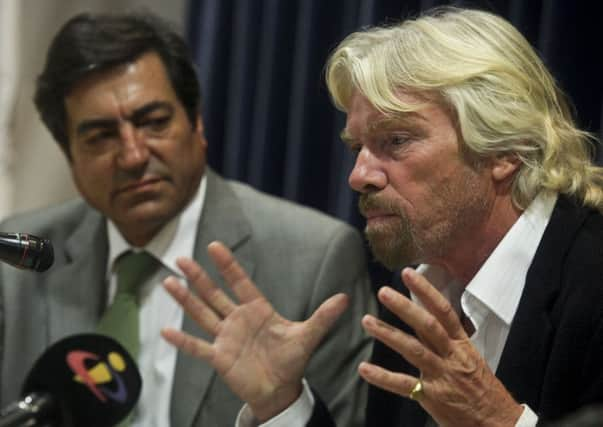Don’t treat addicts as criminals, says Portuguese drugs tsar


João Goulão, the country’s drug tsar, said decriminalising possession in 2001 had helped remove the stigma of substance misuse, allowing those with addictions to be treated with “dignity”.
Drugs remain illegal in Portugal, but those found with small quantities for recreational use are not prosecuted but instead encouraged to undergo treatment.
Advertisement
Hide AdAdvertisement
Hide AdThe approach is part of a wider strategy focusing on prevention, treatment and harm reduction which has been credited with reducing HIV infections and drug-related deaths.
There is growing pressure from public health experts and campaigners in Scotland to look for radical solutions to the drugs crisis, with the rate of death higher than anywhere else in western Europe and two-and-a-half times that of the rest of the UK.
Goulão said that despite initial reservations about decriminalisation, there was now consensus in Portugal that the overall strategy had worked. “Everything we did was based on the idea we were dealing with a chronic disease that should be addressed mostly by the health and social side,” he said.
“Decriminalisation is only one part of the strategy. It’s not fair to say that it was just decriminalisation that led us to the results we have today. We have an improvement in the all the available indicators, but in my view, it’s the result of the complete strategy.
“We’ve had a drop in HIV infection, in overdose deaths, a decrease in criminality, petty crimes, a huge drop in public nuisance. Of course, we did not solve all of our drugs problems; there are new challenges every day. But we feel very comfortable with the results. Even the political parties which voted against it in 2000 now support it. There is a political consensus about the benefits that is completely consolidated.”
The problems suffered by Portugal, a country that was under a dictatorship until 1974, are not the same as in Scotland.
While problem drug use remains stubbornly entrenched in a small section of the Scottish population, the difficulties experienced by Portugal were far more widespread, affecting all sections of society.
“Everybody had somebody at home with a problem,” said Goulão. “People would say, ‘My son is not a criminal, he is in need of help.’ Criminalisation was not felt by the population to be the best way of dealing with things.”
Advertisement
Hide AdAdvertisement
Hide AdAsked if he would recommend decriminalisation for Scotland as part of a wider strategy, he said: “Yes, definitely. It’s a very positive step because it contributes to removing the stigma of drug use and helps involve users in the healthcare system in a more systematic way. People who suffer from dependency deserve the same dignity as other people. This is the biggest effect of decriminalisation.”
A Home Office report published in 2014 found Portugal’s drug strategy had reduced the burden of drug offenders on the criminal justice system and had not led to a “lasting and significant” increase in drug use.
Andrew Horne, Scotland director of drugs charity Addaction, said: “We’ve tried to arrest our way out of this and it’s been a monumental failure. We all have things about ourselves we’d like to change. It might be smoking or drinking or gambling. These things are legal in Scotland, but it doesn’t make people affected by them good and make drug users bad. We don’t arrest people for gambling or smoking so why do we arrest people who use drugs? Not only is it cruel but it doesn’t work.”
But Annie Wells, Scottish Conservative public health spokeswoman, said: “Drug addiction wrecks lives and destroys human potential. Decriminalisation will not stop that.”